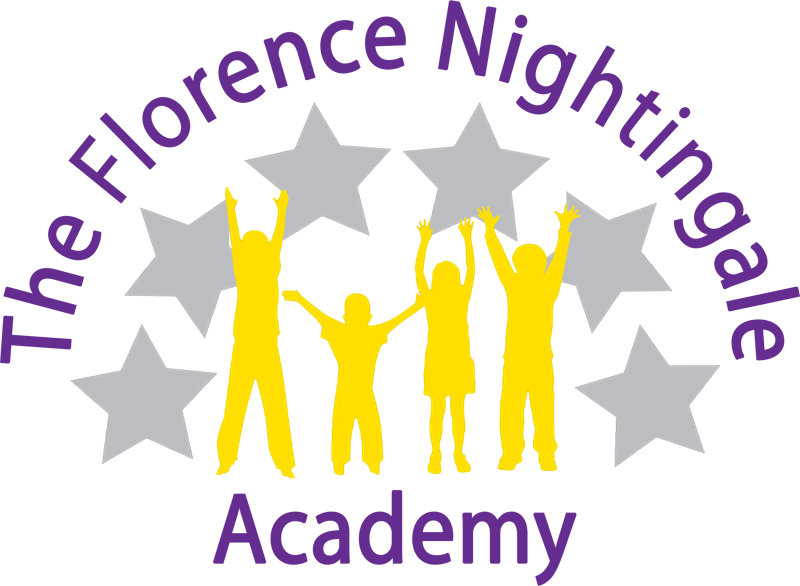
Curriculum Information by Subject
- English
- Maths
- Science
- Art
- Computing
- Design Technology
- Foreign Languages
- Geography
- History
- Music
- PE
- PSHE & British Values
- RE
- Extra Curricular
Reading
We want our children to become enthusiastic and engaged readers, and to develop a life-long love of books. We introduce the children to a range of good quality fiction, non-fiction and poetry books through our whole-class, core-text approach to teaching reading, and during their weekly guided reading session.
In the early stages of reading, we teach children to decode words using phonic skills as their main approach, alongside which we teach sight vocabulary. Once grasped, the focus for developing reading is understanding and comprehension. Your child will read with their class teacher once a week during their guided reading session, then independently supported by teacher set activities during the rest of the week.
Home Reading and Reading for Pleasure
Developing readers will bring home levelled books and a picture book each week. Independent readers will bring home self-selected books from their book corner. Please spend time reading with and talking to your child about what they read, and help them to use their reading log to record their enjoyment of reading. Pupils can earn bookmarks for using their reading logs effectively.
Phonics
For the teaching of Phonics (and Spelling in Key Stage Two), we follow the Sounds Write Programme. This systematic programme teaches children the skills needed to read and write successfully through well structured lessons. Children in Reception and Key Stage One have daily phonics lessons of 20 minutes, and our Key Stage Two children use Sounds Write as a spelling programme in daily 10-minute sessions.
We ensure that all our Key Stage One children have both a phonetically decodable book which supports their phonics learning in class and is matched to their own phonics level as well as a colour banded book which encourage a love of reading and are chosen by the children themselves. Furthermore, children have access to a range of stimulating resources for additional phonics practice.
We provide Phonics Workshops for our parents and carers to help explain how phonics is taught. The National Phonics Screening Check takes place in Summer Term for Year 1 pupils.
Spelling
Alongside phonics, we also teach the children how to spell from Year 1 onwards. We believe that learning to spell is an important tool for your child to use as an essential part of day-to-day life, as well as in their learning. We teach spelling using an investigative and collaborative approach, focusing on spelling patterns, prefixes and suffixes, knowledge of word origin and root words. At the end of Year Two, children will have a spelling test and also at the end of Year Six.
Writing
We use a core text approach over a half term to plan quality written outcomes. This high quality literature is used to engage and inspire the pupils, and provide rich models of writing for them to imitate in their own independent writing, through style, voice and language structure.
The beginning of the half term is spent on the first stage of the writing process – inspire, immerse and analyse, with the remainder of the term spent on planning, quality written outcomes, editing then publishing. A week is devoted to producing the final written outcome as the children are not expected to produce a whole written outcome in one lesson, but rather build up to it over time. Children use cursive handwriting to publish their learning.
Grammar and Punctuation
Grammar and punctuation are taught during English sessions through contextualised learning linked to the core-text. Grammar, language and punctuation skills are taught through analysis of the author’s use of effective vocabulary choices, language structures and writing style, and by using the core-text as a model during the writing process. Children are given opportunities to imitate the author’s style, reflect on why the writing is effective, then to practise and develop their own writing style using the skills they have learnt.
Handwriting
Continuous cursive script is taught from Year 1 onwards through daily handwriting sessions. In Nursery and Reception, pre-cursive script is taught. All handwriting sessions are planned for, modelled and taught following the: I do, we do, you do sequence. Attention is drawn to capitalisation and spelling during the session, as well as to the correct starting point, letter formation and join.
See our Long Term Plans for Writing and Reading
![]() Writing: Year 1 | Year 2 | Year 3 | Year 4 | Year 5 | Year 6
Writing: Year 1 | Year 2 | Year 3 | Year 4 | Year 5 | Year 6
![]() Spelling, Punctuation and Grammar: Year 1 | Year 2 | Year 3 | Year 4 | Year 5 | Year 6
Spelling, Punctuation and Grammar: Year 1 | Year 2 | Year 3 | Year 4 | Year 5 | Year 6
See our long-term plans for Phonics
Please see our Phonics Policy – Phonics Policy
Please see the link for the National Curriculum in Phonics – National Curriculum in Phonics
Please see the link for the National Curriculum in English – National Curriculum in English
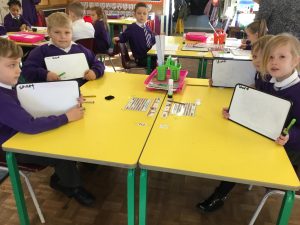
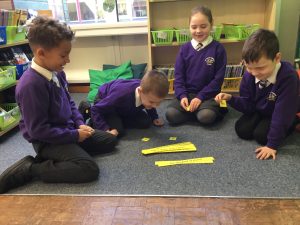
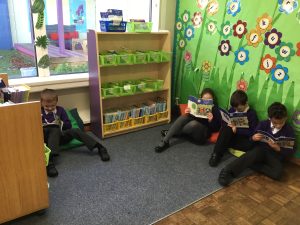
Aims
At The Florence Nightingale Academy, we aim to develop lively, enquiring minds encouraging pupils to become self-motivated, confident and capable in order to solve problems that will become an integral part of their future. The National Curriculum for mathematics aims to ensure that all pupils:
- become fluent in the fundamentals of mathematics, including through varied and frequent practice with increasingly complex problems over time, so that pupils have conceptual understanding and are able to recall and apply their knowledge rapidly and accurately to problems
- reason mathematically by following a line of enquiry, conjecturing relationships and generalisations, and developing an argument, justification or proof using mathematical language
- can solve problems by applying their mathematics to a variety of routine and non-routine problems with increasing sophistication, including breaking down problems into a series of simpler steps and persevering in seeking solutions.
Curriculum
Early Years
The programme of study for the Foundation stage is set out in the EYFS Framework 2012. Mathematics involves providing children with opportunities to develop and improve their skills in counting, understanding and using numbers, calculating simple addition and subtraction problems; and to describe shape, spaces and measures.
Key Stage 1
The principal focus of mathematics teaching in Key Stage 1 is to ensure that pupils develop confidence and mental fluency with whole numbers, counting and place value. This should involve working with numerals, words and the four operations, including with practical resources (e.g. concrete objects and measuring tools). At this stage, pupils should develop their ability to recognise, describe, draw, compare and sort different shapes and use the related vocabulary. Teaching should also involve using a range of measures to describe and compare different quantities such as length, mass, capacity/volume, time and money.
By the end of Year 2, pupils should know the number bonds to 20 and be precise in using and understanding place value. An emphasis on practice at this early stage will aid fluency. Pupils should read and spell mathematical vocabulary, at a level consistent with their increasing word reading and spelling knowledge at Key Stage 1.
Lower Key Stage 2
The principal focus of mathematics teaching in lower Key Stage 2 is to ensure that pupils become increasingly fluent with whole numbers and the four operations, including number facts and the concept of place value. This should ensure that pupils develop efficient written and mental methods and perform calculations accurately with increasingly large whole numbers.
At this stage, pupils should develop their ability to solve a range of problems, including with simple fractions and decimal place value. Teaching should also ensure that pupils draw with increasing accuracy and develop mathematical reasoning so they can analyse shapes and their properties, and confidently describe the relationships between them. It should ensure that they can use measuring instruments with accuracy and make connections between measure and number.
By the end of Year 4, pupils should have memorised their multiplication tables up to and including the 12 multiplication table and show precision and fluency in their work. Pupils should read and spell mathematical vocabulary correctly and confidently, using their growing word reading knowledge and their knowledge of spelling.
Upper Key Stage 2
The principal focus of mathematics teaching in upper Key Stage 2 is to ensure that pupils extend their understanding of the number system and place value to include larger integers. This should develop the connections that pupils make between multiplication and division with fractions, decimals, percentages and ratio. At this stage, pupils should develop their ability to solve a wider range of problems, including increasingly complex properties of numbers and arithmetic, and problems demanding efficient written and mental methods of calculation. With this foundation in arithmetic, pupils are introduced to the language of algebra as a means for solving a variety of problems. Teaching in geometry and measures should consolidate and extend knowledge developed in number. Teaching should also ensure that pupils classify shapes with increasingly complex geometric properties and that they learn the vocabulary they need to describe them.
By the end of Year 6, pupils should be fluent in written methods for all four operations, including long multiplication and division, and in working with fractions, decimals and percentages. Pupils should read, spell and pronounce mathematical vocabulary correctly.
Download our Math’s policy here – Math’s Policy
![]() Download our Long Term Plans for Maths in each Year Group:
Download our Long Term Plans for Maths in each Year Group:
Foundation | Year 1 | Year 2 |Year 3 |Year 4 |Year 5 |Year 6
Please see the link for the National Curriculum for Math’s – National Curriculum in Math’s
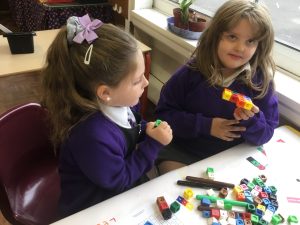
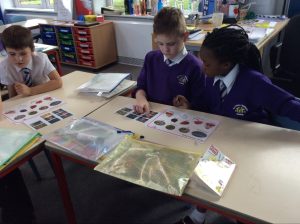
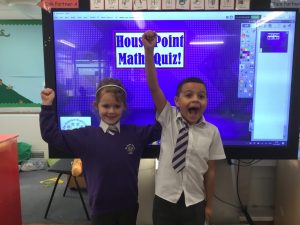
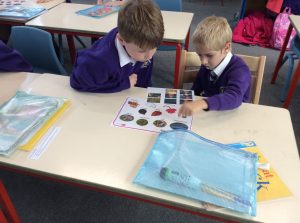
Our children are the future of science and we want them to aspire to be our next researchers, microbiologists, palaeontologists or even astronauts. They will go through school with an appreciation of the many directions that their science education can take them in the future. A high-quality science education provides the foundations for understanding the world. Science has changed our lives and is vital to the world’s future prosperity, all pupils should be taught essential aspects of the knowledge, methods, processes and uses of science developing transferable skills including problem-solving, reasoning and enquiry.
Science should provide children with a deep understanding of scientific concepts and a range of practical scientific skills which will provide them with a foundation that can be built upon in KS3 and beyond.
Primary science should foster children’s curiosity in the world in which they live.
Furthermore, putting those skills into practise through a focus on environmental science will give the children a deeper understanding and appreciation of the world around them. They should be encouraged to care for our planet and the living things around us, understanding their own personal impact on the environment and how best to protect our future.
Please see the link for the National Curriculum for Science: National curriculum in England: science programmes of study – GOV.UK (www.gov.uk)
Download our Science Policy here.
Please click her for out Science Long Term plan – Science Long Term Plan
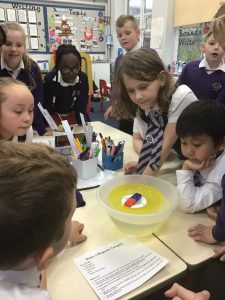
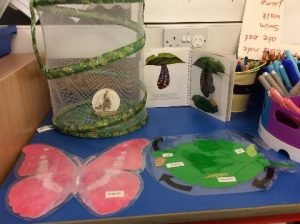
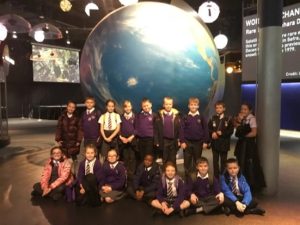

Art and Design enriches children’s learning and enables them to communicate their thoughts, ideas and observations in a practical and expressive way. It embodies some of the highest forms of human creativity. We are dedicated, as a school, to provide a rich and inspiring curriculum which fosters an open-ended exploration of creativity. Basic skills are introduced and then built on throughout school. Through the study of a wide range of artists, designers and cultural influence, our children will have the knowledge necessary to be modern, global citizens
The National Curriculum for Art and Design, states that children should be able to:
- experiment, invent and create their own works of art, craft and design.
- think critically and develop a more rigorous understanding of art and design.
- know how art and design reflect and shape our history and contribute to the culture, creativity and wealth of our nation.
Art and Design Delivery Statement
| Intent | Using the sequence provided by the Kapow Scheme of Work, we ensure that the skills, content and knowledge provided in the National Curriculum are covered with coherent and logical progression that builds on skills year on year. Teachers ensure that the skills are knowledge covered does not deviate from the knowledge statements provided but can tweak the theme to match with other wider topics. Teachers have a Skills Progression Ladder which clearly outlines the expected depth of skills and understanding for each year group in every area. |
| Implementation | Ensure that the teachers of the subject have excellent subject knowledge, and leadership supports that acquisition of this for NQT and non- specialist teachers. The Kapow Scheme of Work supports teacher subject knowledge and skills through tutorial videos and lots of visual support. Art work can be clearly modelled by teachers or through student videos, which allows children to break the work down into small, manageable steps. Art and Design is carefully resources to ensure that teachers have all the resources needed to carry out high quality lessons. |
|
Impact
|
Learners develop detailed knowledge and skills. We check this through regular pupil voice and collecting evidence of outcomes which we measure against our age base progression grids. Pupils are well prepared at each stage to be ready for the next stage of learning. |
Art and Design in EYFS
Expressive Arts and Design (EAD) in Early Years enables children to explore and play with a range of media and materials and provides opportunities and encouragement for sharing thoughts, ideas and feelings through a variety of art, music, movement, dance, role-play and design and technology. In EYFS the children also start to be introduced to some artists and identify colour, texture, and technique. The EYFS learning is broken down into:
- Exploring and using media and materials: children safely use and explore a variety of materials, tools and techniques, experimenting with colour, design, texture, form and function.
- Being imaginative: children use what they have learnt about media and materials in original ways which represent their own ideas, thoughts and feelings.
Art and Design in KS1
Pupils should be taught:
- to use a range of materials creatively and design and make products.
- to use drawing, painting and sculpture to develop and share their ideas, experiences and imagination.
- to develop a wide range of art and design techniques in using colour, pattern, texture, line, shape, form and space.
- about the work of a range of artists, craft makers and designers, describing the differences and similarities between the practices and disciplines, and making links to their own work.
Art and Design in KS2
Pupils should be taught to develop their techniques, including their control and use of materials, with creativity, experimentation and an increasing awareness of different kinds of art, craft and design.
Pupils should be taught to:
- to create sketch books to record their observations and use them to review and revisit ideas.
- to improve their mastery of art and design techniques, including drawing, painting and sculpture with a range of materials (for example, pencil, charcoal, paint, clay).
- about great artists, architects and designers in history.
Click here for our Long Term Art plan
Please see our Art Policy – Art Policy
Please see the link for the National Curriculum for Art – National Curriculum in Art
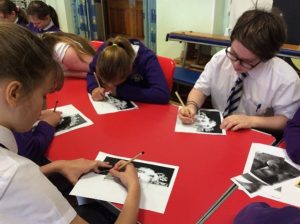
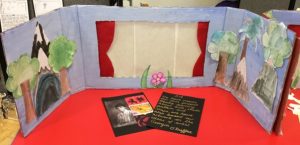
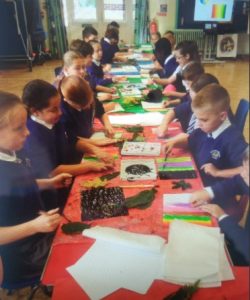
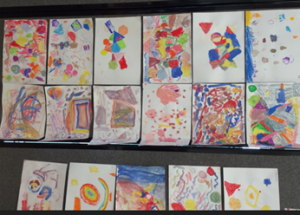
The National Curriculum for Computing in Years 1 and 2.
Our children will be taught to:
- understand what algorithms are; how they are implemented as programs on digital devices; and that programs execute by following precise and unambiguous instructions
- create and debug simple programs
- use logical reasoning to predict the behaviour of simple programs
- use technology purposefully to create, organise, store, manipulate and retrieve digital content
- recognise common uses of information technology beyond school
- use technology safely and respectfully, keeping personal information private; identify where to go for help and support when they have concerns about material on the internet or other online technologies
The National Curriculum for Computing in Years 3 to 6.
Our children will be taught to:
- design, write and debug programs that accomplish specific goals, including controlling or simulating physical systems; solve problems by decomposing them into smaller parts
- use sequence, selection, and repetition in programs; work with variables and various forms of input and output
- use logical reasoning to explain how some simple algorithms work and to detect and correct errors in algorithms and programs
- understand computer networks including the internet; how they can provide multiple services, such as the world-wide web; and the opportunities they offer for communication and collaboration
- use search technologies effectively, appreciate how results are selected and ranked, and be discerning in evaluating digital content
- select, use and combine a variety of software (including internet services) on a range of digital devices to design and create a range of programs, systems and content that accomplish given goals, including collecting, analysing, evaluating and presenting data and information.
- use technology safely, respectfully and responsibly; recognise acceptable/unacceptable behaviour; identify a range of ways to report concerns about content and contact
![]() Click here to view our Long Term Plan for Computing
Click here to view our Long Term Plan for Computing
Please see our Computing Policy
Please see the link for the National Curriculum in Computing – National Curriculum in Computing

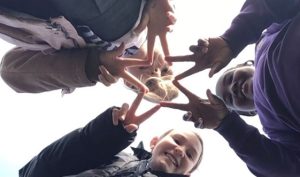

In design and technology our vision is to empower children through equipping them with the opportunity to develop key life skills.
- Development of creativity, imagination, co-operation and communication skills.
- Practical life skills including team work, critical thinking and problem solving.
- Development of Understanding when using technology to help plan and design.
- Development of understanding needs in relation to people and the environment when working from a brief.
- Skills which children can use to mould, craft and make projects using a wide range of materials.
- Skills which the children can take into future employment.
Design and Technology in EYFS and F2
Children will learn about the world around them. Exploring different mechanisms such as how bikes and scooters move. They will also learn about different materials some of their basic properties and begin to investigate simple structures and how to make them. Children will be given the opportunity to experience a range of different food, discussing taste, textures and smells.
Design and Technology in KS1
Children will develop knowledge of how wheels and axels work as well as simple sliders and levers. They will learn about freestanding structures and how to make them stable. They will begin to learn simple sewing techniques as well as how to prepare simple dishes.
Design and Technology in KS2
Children will build upon the skills they have been learning through school. They will develop their knowledge of mechanisms and structures in line with the national curriculum framework. They will begin to shape material from 2D to 3D and combine different fabric shapes. They will develop their understanding of healthy food and explore cultural and celebrations in relation to food. During KS2 children will also begin to learn about electronics and electrical systems.
By providing the children with exciting and inspiring practical projects they will be able to use their imagination, creativity and team work to create innovative products which have been meticulously planned and evaluated. Cross curricular links will provide the children with the opportunity to master maths, science and ICT skills learnt throughout their learning journey through school. By evaluating current designs, products and materials children will learn about sustainability on a range of different scales including home, school and the wider environment and the impact that they can have upon these.
Click her for our Design and Technology Policy – Design and Technology Policy
Click here to view our long term plan – Long Term Plan
Please see the link for the National Curriculum for Design and Technology – National Curriculum for Design and Technology
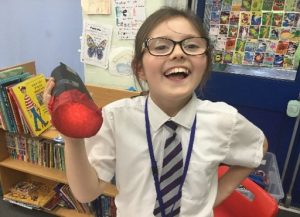
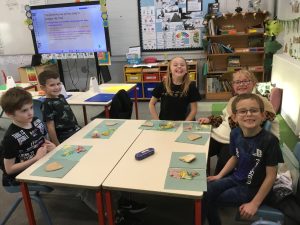
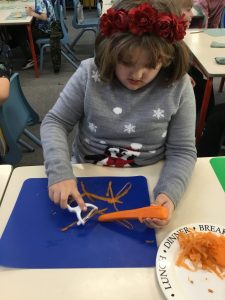
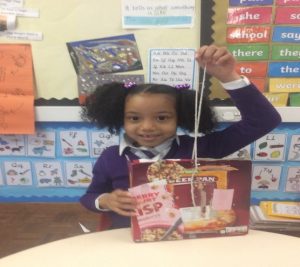
We believe it is important all children are given the opportunity to learn a foreign language. At Florence Nightingale Academy, our children are very lucky to learn not one but two foreign languages- Spanish and Mandarin.
As part of the National Curriculum, from 2014 in England learning a foreign language has been compulsory for Key Stage 2 children. Pupils at FNA are given a head-start, with weekly Mandarin lessons beginning in Reception.
It sets out the following Purpose of Study for learning a foreign language:
- To provide an opening to other cultures
- To foster pupils’ curiosity and deepen their understanding of the world
- To express their ideas and thoughts in another language and to understand and respond to its speakers
- To learn new ways of thinking and read great literature in the original language
- To provide foundation for leaning future languages and equip pupils to study and work in other countries.
Mandarin
In Reception, children have a short Mandarin lesson based around songs and rhymes.
In Key Stage 1, children’s learning is based around simple vocabulary, songs and games. Through this, children start to hear the different sounds that occur in Mandarin and feel confident using key words and phrases. They begin to learn basic structure of Mandarin language and start their journey towards reading and writing in another language.
In Key Stage 2, pupils are encouraged to practice writing characters regularly and will be given the opportunity to practice their speaking and listening. Pupils who begin Mandarin in Year 1, should be able to understand around 200 words in Mandarin.
We ensure the process of learning Mandarin is enjoyable – a typical lesson is very interactive, packed with fun activities and games. Exploring aspects of Chinese culture is an integral part of the learning and where possible, references to Chinese culture, history and geography are incorporated into the language exercises. It is interesting and fun for the children to find out about China and the Chinese way of life and compare it with their own, we believe that this is essential when developing global citizens.
Please see our Mandarin Policy – Mandarin Policy
Please see our Long Term Plan – Mandarin LTP
Spanish
Our Spanish curriculum ensures that all children are exposed to the Spanish language and culture through engaging and dynamic lessons. Children in both Key Stage One and Two enjoy weekly Spanish lessons, taught through Language Angels which offer authentic pronunciation and language modelling.
Key Stage 1- Children have weekly 20-minute lessons, which focus primarily on Speaking and Listening. Lessons build vocabulary in age appropriate topics such as numbers, animals and Christmas!
Key Stage 2- Children take part in weekly 45-minute lessons, which build on and develop the vocabulary learnt in Key Stage 1. There is more of a focus on sentence structure and grammar which enables pupils to have more authentic dialogues and communicate in a more accurate way.
Please see our Spanish Policy – Spanish Policy
Please see our Long Term Plan – Spanish Long-Term Plan
Please see the link for the National Curriculum for languages – National Curriculum for Languages
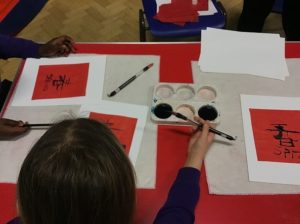
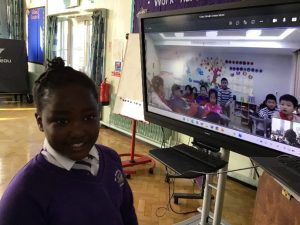
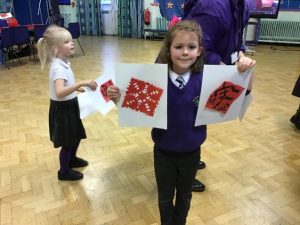
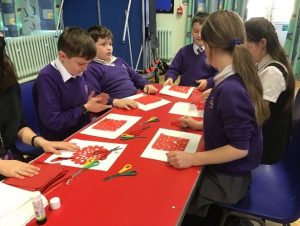
Geography
At The Florence Nightingale Academy we are geographers!
Through our high-quality geography education, we help our children to develop a curiosity and fascination about the world and its people. We teach and engage our children through a range of lessons that inspire and captivate them. We do this through skills-based lessons, practical activities and exciting fieldwork.
We want our children to understand that the world is one community and that we all play an important and vital role. We aim for our children to love geography and for them to have no limits to what their aspirations and ambitions can be!
Geography in EYFS
In EYFS, children study geography through the ‘Understanding the World’ strand of their curriculum. Children begin their geographical journey by learning about themselves and their immediate environment. Following this, children then begin to explore their local area by looking at the geography of our school and community, exploring the environment, looking at natural and human land use and talking about people who can help us in our community. Children explore their environment through continuous provision, fieldwork and adult guided activities.
Geography in KS1
In KS1, Children develop their geographical knowledge by learning all about the features of our school and the local area. Children then make connections between our local area and contrasting areas in the United Kingdom, identifying similarities and differences. In KS1, children also begin to explore the features of the wider world. The geographical knowledge learnt in this key stage is broken down into the following 4 strands.
Locational Knowledge- Learn the names and characteristics of the 7 continents, 5 oceans and the 4 countries that make up the United Kingdom.
Place Knowledge- Learn about the geography of the United Kingdom and make comparisons between where we live and other places in the world.
Human and Physical Geography- Identify seasonal and weather patterns in the United Kingdom and how these compare to other locations around the world. Understand where the North/South Poles and the Equator are and how these are linked to cold and hot areas of the world.
Geographical Skills and Fieldwork- Use world maps, atlases and globes to identify areas of the world. Use simple compass directions to describe the location of places. Use aerial photographs and plan perspectives to recognise landmarks and create a simple map to show these. Use simple fieldwork and geographical skills to learn about the geography of our school and local area.
Geography in KS2
In KS2, children continue to learn about the United Kingdom and deepen their understanding of the key human and physical features of our country. Children then use their geographical skills and knowledge to identify similarities and differences between where we live and other areas of the world, particularly in Europe and North/South America. The geographical knowledge learnt in this key stage is broken down into the following 4 strands.
Locational Knowledge- Locate the countries of the world, focussing on Europe, North and South America. Name and locate places within the United Kingdom and their physical and human characteristics of these areas. Understand and identify key geographical terms such as: longitude, latitude, the Equator, Northern and Southern hemispheres, tropics of cancer and Capricorn, artic and Antarctic circle and time zones.
Place Knowledge- Learn about the geography of the United Kingdom and make comparisons between where we live and other places in the world.
Human and Physical Geography- Describe aspects of physical geography such as rivers, volcanoes, mountains and climate zones and aspects of human geography such as types of land use, economic activity and the distribution of natural resources.
Geographical Skills and Fieldwork- Use maps, atlases, globes and digital computer mapping to identify and locate areas of the world. Use the eight points of a compass to develop knowledge of the United Kingdom and the wider world. Use fieldwork to find out more about human and physical features in the local area.
![]() Click here to view our Long Term Plan for Humanities
Click here to view our Long Term Plan for Humanities
Please see our Geography policy – Geography Policy
Please see the link for the National Curriculum for Geography
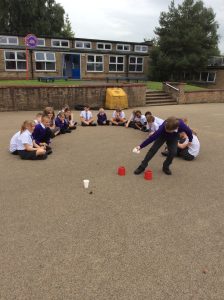
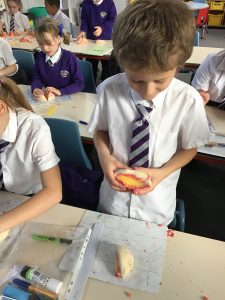

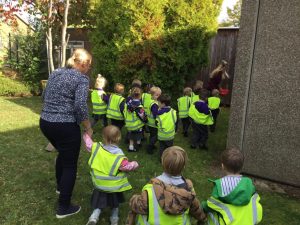
At Florence Nightingale we are historians! We want our children to love history and for them to have no limits to what their aspirations and ambitions can be. For them to grow up wanting to be archivists, museum curators, archaeologists or research analysts. Through our high-quality history education, we help our children to gain a coherent knowledge and understanding of Britain’s past and that of the wider world. We want to enhance their curiosity and prepare them to ask perceptive questions, think critically, weigh evidence and develop perspective and judgement. We want our children to remember their history lessons in our school, to cherish these memories and embrace the historical opportunities they are presented with!
The National Curriculum for History in Years 1 and 2.
Our children will be taught to:
Examples in italics are not statutory
- changes within living memory. Where appropriate, these should be used to reveal aspects of change in national life
- events beyond living memory that are significant nationally or globally e.g. the Great Fire of London, the first aeroplane flight or events commemorated through festivals or anniversaries
- the lives of significant individuals in the past who have contributed to national and international achievements. Some should be used to compare aspects of life in different periods e.g. Elizabeth I and Queen Victoria, Christopher Columbus and Neil Armstrong, William Caxton and Tim Berners-Lee, Pieter Bruegel the Elder and LS Lowry, Rosa Parks and Emily Davison, Mary Seacole and/or Florence Nightingale and Edith Cavell
- significant historical events, people and places in their own locality.
The National Curriculum for History in Years 3 to 6.
Examples in italics are not statutory.
Pre-Roman Britain
Our children will be taught about changes in Britain from the Stone Age to the Iron Age
This could include:
- late Neolithic hunter-gatherers and early farmers, for example, Skara Brae
- Bronze Age religion, technology and travel, for example, Stonehenge
- Iron Age hill forts: tribal kingdoms, farming, art and culture
Roman Britain
Our children will be taught about the Roman empire and its impact on Britain
This could include:
- Julius Caesar’s attempted invasion in 55-54 BC
- the Roman Empire by AD 42 and the power of its army
- successful invasion by Claudius and conquest, including Hadrian’s Wall
- British resistance, for example, Boudica
- “Romanisation” of Britain: sites such as Caerwent and the impact of technology, culture and beliefs, including early Christianity
Anglo-Saxons & Scots
Our children will be taught about Britain’s settlement by Anglo-Saxons and Scots
This could include:
- Roman withdrawal from Britain in c. AD 410 and the fall of the western Roman Empire
- Scots invasions from Ireland to north Britain (now Scotland)
- Anglo-Saxon invasions, settlements and kingdoms: place names and village life
- Anglo-Saxon art and culture
- Christian conversion – Canterbury, Iona and Lindisfarne
Anglo-Saxons & Vikings
Our children will be taught about the Viking and Anglo-Saxon struggle for the Kingdom of England to the time of Edward the Confessor
This could include:
- Viking raids and invasion
- resistance by Alfred the Great and Athelstan, first king of England
- further Viking invasions and Danegeld
- Anglo-Saxon laws and justice
- Edward the Confessor and his death in 1066
Local History
Our children will be taught about an aspect of local history
For example:
- a depth study linked to one of the British areas of study listed above
- a study over time tracing how several aspects of national history are reflected in the locality (this can go beyond 1066)
- a study of an aspect of history or a site dating from a period beyond 1066 that is significant in the locality.
Extended chronological study
Our children will be taught a study of an aspect or theme in British history that extends pupils’ chronological knowledge beyond 1066
For example:
- the changing power of monarchs using case studies such as John, Anne and Victoria
- changes in an aspect of social history, such as crime and punishment from the Anglo-Saxons to the present or leisure and entertainment in the 20th Century
- the legacy of Greek or Roman culture (art, architecture or literature) on later periods in British history, including the present day
- a significant turning point in British history, for example, the first railways or the Battle of Britain
Ancient Civilizations
Our children will be taught about the achievements of the earliest civilizations – an overview of where and when the first civilizations appeared and a depth study of one of the following:
- Ancient Sumer;
- The Indus Valley;
- Ancient Egypt; or
- The Shang Dynasty of Ancient China
Ancient Greece
Our children will be taught a study of Greek life and achievements and their influence on the western world
Non-European Study
Our children will be taught about a non-European society that provides contrasts with British history – one study chosen from:
- early Islamic civilization, including a study of Baghdad c. AD 900;
- Mayan civilization c. AD 900; or
- Benin (West Africa) c. AD 900-1300
![]() Click here to view our Long Term Plan for Humanities
Click here to view our Long Term Plan for Humanities
Please see the link for the National Curriculum in History – National Curriculum in History
Please see our Long Term Plan for History – History Policy
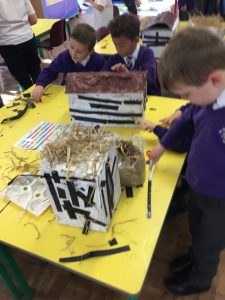
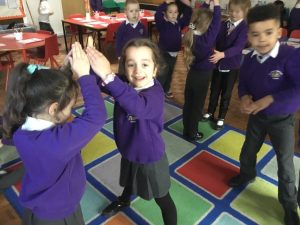
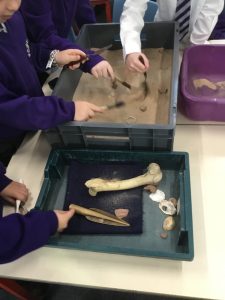
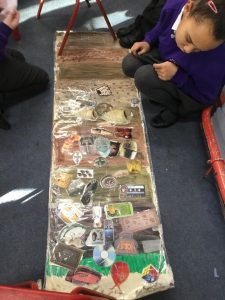
Each year group studies different instruments and mediums for making music.
- Year 1 – Singing and rhythm
- Year 2 – Recorders
- Year 3 – Glockenspiels
- Year 4 – Glockenspiels
- Year 5 – Ukuleles
- Year 6 – Guitar
We have weekly singing assemblies with an outside musician and an active school choir who perform in school and for the local community. Our Year 5 and 6 children perform annually with the Hallé Orchestra at the Royal Concert Hall in Nottingham. We also have a very popular after school recorders club.
The National Curriculum for Music in Years 1 and 2.
Our children will be taught to:
- use their voices expressively and creatively by singing songs and speaking chants and rhymes
- play tuned and untuned instruments musically
- listen with concentration and understanding to a range of high-quality live and recorded music
- experiment with, create, select and combine sounds using the interrelated dimensions of music
The National Curriculum for Music in Years 3 to 6.
Our children will be taught to:
- play and perform in solo and ensemble contexts, using their voices and playing musical instruments with increasing accuracy, fluency, control and expression
- improvise and compose music for a range of purposes using the interrelated dimensions of music
- listen with attention to detail and recall sounds with increasing aural memory
- use and understand staff and other musical notations
- appreciate and understand a wide range of high-quality live and recorded music drawn from different traditions and from great composers and musicians
- develop an understanding of the history of music.
Click here to view our long term action plan for Music
Please see the link for the National Curriculum in Music – National Curriculum in Music
PE and School Sport is led by PE specialist Mrs Chauhan with support from Mr Sainsbury and is delivered by class teachers.
PE and sport have been proven to promote skills such as working as part of a team, develop social and communication skills, decision making and leadership skills which are needed not only across the curriculum but in everyday life. Children learn to pay by rules and boundaries, are encouraged to take on leadership roles by coaching, leading, refereeing or scoring. They develop their self-confidence by performing their work to others. They are able to peer and self-assess performances and give feedback with reflection being an important factor. They try to improve and beat their ‘Personal Best’ and take part in competitive sport learning to show good sporting behaviour, fair play and how to deal with winning and losing.
Our aim is to ensure that our children take part in a wide range of sports and activities to develop their skills, knowledge and understanding and know how to lead a healthy lifestyle whilst following the National Curriculum for PE.
Our curriculum covers:
- Games (Invasion, net and wall, target games, striking & Fielding) such as netball, football, rugby, tennis, cricket, rounders, handball and tchoukball.
- Gymnastics including parkour and sports acrobatics.
- Athletics both indoors and outdoors.
- Dance – Children take part in a range of different dance genres such as Chinese New Year Dragon Dance, breakdancing and Blue Planet .
- Year 1 have weekly ballet lessons with a specialist dance teacher.
- Health and Fitness including skipping, circuit training, Zumba, boxericse, yoga among others.
- Swimming – Year 5 attend swimming lessons at Victoria Park Leisure Centre in Ilkeston.
- Commando Joe’s – Each class has a weekly Commando Joe’s lesson which develops the R.E.S.P.E.C.T skills and OAA activities.
EYFS:
In Nursery and F2, children are taught and explore PESD skills as follows:
Fundamental skills in dance & movement, games, ABC (Agility, balance & Coordination) skills.
Extra Curricular and Competitive Opportunities:
We offer many different after school clubs during the school year including: gymnastics, football, team games, rounders, cricket, dance, athletics and running.We are members of the Eastwood and District Sports Association and take part in competitions in football, rounders, athletics, dance, cricket and cross country.
The KS1 Football Festival is led by Mrs Chauhan and held at Florence annually and the District cross country is hosted at the school every year.
We also take part in some Broxtowe area competitions.
FNA PE Long Term Plan 2022 23 PDF
Please see the link for the National Curriculum in PE – National Curriculum in PE
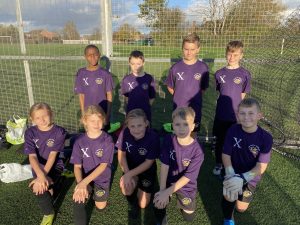
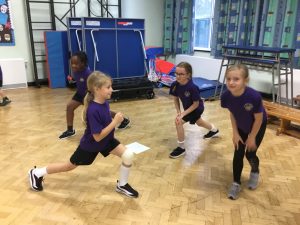
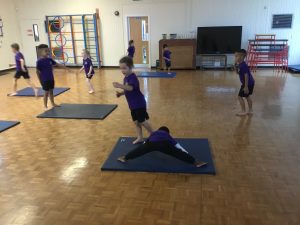
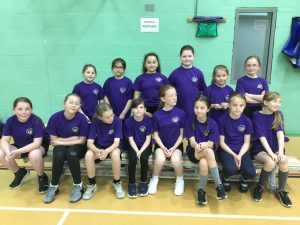
Through the PSHE and British Values curriculum we aim to prepare our children for life in the wider world. They will learn about their physical and mental health, how to stay safe online, as well as relationships.
Aims:
As a school we aim to promote PSHE and British Values and to create a safe space for children to openly discuss and share their views and opinions.
Children are taught about the benefits of a healthier lifestyle, what determines their physical health and how to build mental resilience and wellbeing. It will also make sure children and young people learn how to recognise when they and others are struggling with mental health and how to respond. (DfE, 2019)
They are able to take part in discussions about current affairs, key issues and express their thoughts and feelings. They are taught practical strategies to deal with their emotions, how to improve their physical and mental health and well-being. They learn about their changing bodies and emotions in preparation for secondary school and adulthood. It is hoped that we equip them with the information they need to make informed decisions in the future and take responsibility for their own health.
All classes have weekly PSHE lessons with Mrs Chauhan and their class teacher. We are following the SCARF (Coram Life Education) and the PSHE Curriculum from September 2020.
Each class discusses the weekly PSHE Picture News theme and discuss British Values, every class has a worry box, an anti-bullying board and two anti-bullying advocates.
We support and promote National and International days such as Anti-Bullying week, LGBTQ+ Awareness, Stephen Lawrence Day, Disability Awareness, Mental Health day, among others.
We advocate the NSPCC PANTS initiative and promote: “Privates are Private” across the school. We also use additional resources as appropriate such as Premier League Stars, Mind, The PSHE Association, amongst others.
Please see the link for National Curriculum in PHSE – National Curriculum in PHSE
Please see the link for the Long Term Plan – PHSE Long Term Plan
Please see the policy for PHSE – PHSE Policy
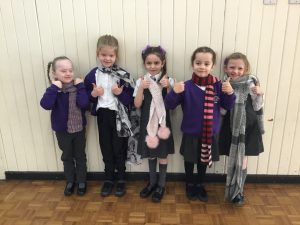
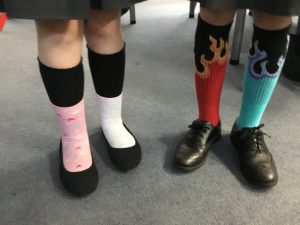
British Values at the Florence Nightingale Academy pdf
As a whole school we have agreed to adopt the Nottinghamshire’s Religious Education Agreed Syllabus. The aim of RE in Nottinghamshire is to ensure all pupils:
- Know about and understand a range of religions and world views.
- Express ideas and insights about the nature, significance and impact of religions and world views.
- Gain and deploy the skills needed to engage seriously with religions and world views.
RE in EYFS
- Pupils should encounter religions and world views through special people, books, times, places and objects and by visiting places of worship.
- They should listen to and talk about stories.
- Pupils can be introduced to subject specific words and use all their senses to explore beliefs, practices and forms of expression.
- They ask questions and reflect on their own feelings and experiences.
- They use their imagination and curiosity to develop their appreciation of and wonder at the world in which they live.
RE in KS1
- The Focus of RE for KS1 enables children to develop their knowledge and understanding of religions and world views.
- They find out about simple examples of religion that are drawn from local, national and global contexts.
- They should use basic subject specific vocabulary.
- They should raise questions and begin to express their own views in response to the material they learn about and in response to questions about their ideas.
RE in KS2
- The Focus of RE for KS2 enables pupils to extend their knowledge and understanding of religions and world views, recognising their local, national and global contexts.
- They should be introduced to an extended range of sources and subject specific vocabulary.
- They should be encouraged to be curious and to ask increasingly challenging questions about religion, belief, values and human life.
- Pupils should learn to express their own ideas in response to the material they engage with, identifying relevant information, selecting examples and giving reasons to support their ideas and views.
![]() Click here to view our Long Term Plan for RE
Click here to view our Long Term Plan for RE
Please see the link for the National Curriculum in RE – National Curriculum in RE
Please see our RE policy – RE Policy
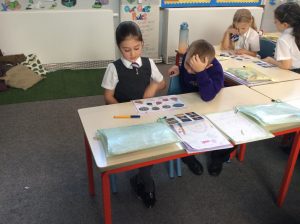
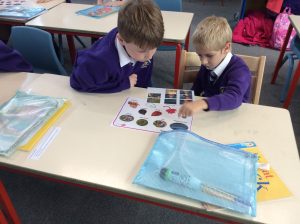
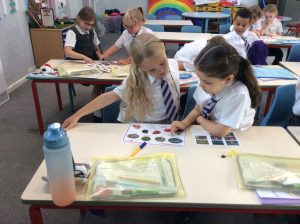
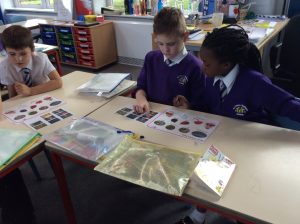
We offer a range of after school clubs and teams led predominantly by school staff.
All staff in school are keen to expose children to a wide range of opportunities and to help develop their understanding and skills of the wider world.
Many children go on to represent the school in sporting and other opportunities.
We take part in many local competitions and are members of the Eastwood and District Sports Association and Broxtowe School Games partnership.
We also have good links with local sports clubs:
- Eastwood Community Football Club
- Eastwood Cricket Club
- Kimberley & District Striders Running Club
- Shianne School of Dance
- Commando Joe’s
